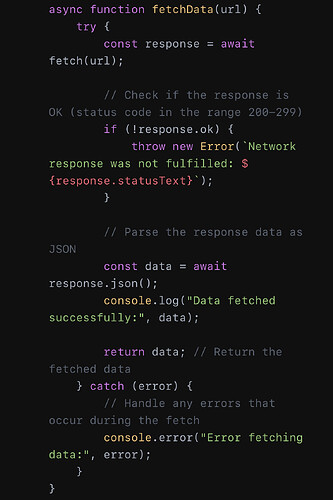𝐃𝐚𝐲 𝟏𝟎: 𝐗𝐌𝐋𝐇𝐭𝐭𝐩𝐑𝐞𝐪𝐮𝐞𝐬𝐭 𝐯𝐬. 𝐅𝐞𝐭𝐜𝐡 𝐀𝐏𝐈
𝐗𝐌𝐋𝐇𝐭𝐭𝐩𝐑𝐞𝐪𝐮𝐞𝐬𝐭 and 𝐅𝐞𝐭𝐜𝐡 𝐀𝐏𝐈 are used to make HTTP requests in JavaScript, but they 𝐬𝐞𝐫𝐯𝐞 𝐝𝐢𝐟𝐟𝐞𝐫𝐞𝐧𝐭 𝐩𝐮𝐫𝐩𝐨𝐬𝐞𝐬 and have distinct characteristics.
→ 𝐗𝐌𝐋𝐇𝐭𝐭𝐩𝐑𝐞𝐪𝐮𝐞𝐬𝐭 provides a way to make HTTP requests and handle responses using a more complex, callback-based syntax. It supports both synchronous and asynchronous requests, and offers progress events to monitor data transfer.
→ 𝐅𝐞𝐭𝐜𝐡 𝐀𝐏𝐈 offers a modern, promise-based approach to making HTTP requests, with a simpler and more readable syntax. It only supports asynchronous requests and lacks built-in progress event handling but allows for better error handling and response parsing.
Although they serve different purposes, they can be used together or separately based on the requirements of your project, with Fetch API being the preferred choice for modern web development.
